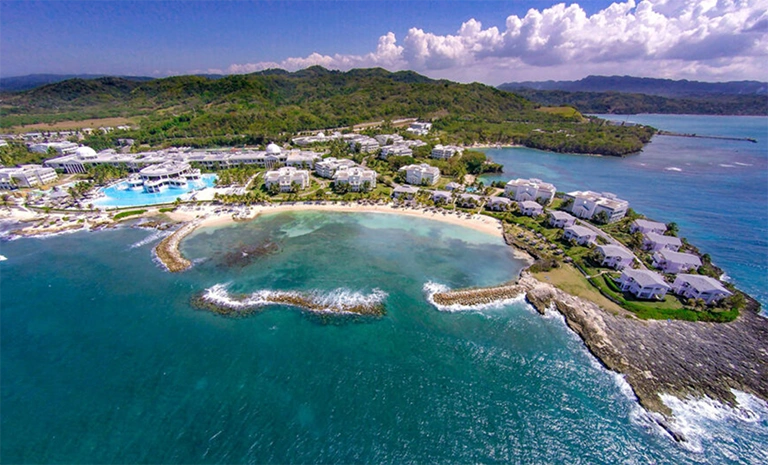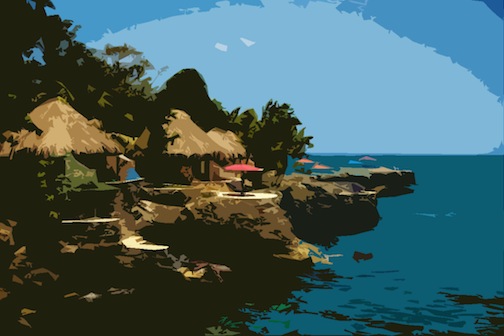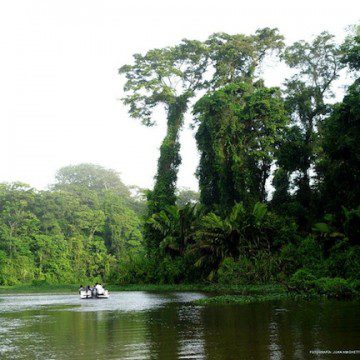China and the Caribbean — a Marriage Made in Heaven?

By Zhivargo Laing
CJ Contributor
ON A recent radio show in the Bahamas, the topic of China’s $8 million loan to the country was being discussed.
A curious caller asked, “what do the Chinese want for these loans anyway?” Her question is probably repeated in the minds of many Caribbean people and it deserves an answer.
Of course, only China can say definitively what it wants in return for its generosity. But in the absence of a clear reply from Beijing, one can offer plausible reasons for the Chinese loans.
Many do not want to hear it, but it is true that Caribbean countries have to borrow significant sums of money for the foreseeable future. Since we have to do it to pay our bills, borrowing at the lowest possible cost is an important fiscal goal of any prudent government.
Low interest rates over extended periods of time are a cash-poor Caribbean government’s dream come true. Lower borrowing costs mean lower negative cash flow impact. Who could ask for anything more when borrowing?
But what fairy tale lender would offer such largesse to Caribbean governments, a number of whom have high debt-to-GDP ratios, some exceeding 100 percent?
With those ratios, commercial borrowing becomes near impossible or exacts a prohibitive cost and multilateral institutions such as the International Monetary Fund (IMF) will only lend or bailout under restrictive fiscal terms as some of our countries already are experiencing.
Enter the Chinese.
China is a world power and in a few decades has become a global economic force with which to reckon. The country’s GDP per capita at $9,100 remains relatively low, much lower than that of say the United States, at about $49,900.
However, by opening its economy to a dynamic form of capitalism while continuing to govern itself as a communist state, China has enriched itself enormously.
The Chinese government is now awash with cash, even if the Chinese people still have some ways to go to experience a better quality of life.
Wise owners of large sums of cash know it is better to put it to safe and productive use, so you can continue to grow it. Renting money to those who demonstrate a capacity to pay it back is the best known form of using capital. No means of using cash has proven more productive over time. Look at the financial institutions now occupying the top spots on the Fortune 500 list of most profitable companies.
Despite the recent well-publicized near-collapses and last-minute bail-outs following the global economic and financial crisis, no lending bet has been safer than lending to governments. This is why treasury bills remain among the lowest interest bearing and safest of all investments.
It is also helpful to be able to lend to those who might use your labour and products to implement projects being funded by your lending.
This is one of the things the Chinese want: lend their excess cash to governments which will employ significant Chinese labour and products, both of which come less expensive than can be found at home or elsewhere abroad, and then earn money on that cash for the long haul.
On top of all this, the idea is to lend to those in need and you show yourself helpful and friendly in the process. Like other global powers have done throughout history, the Chinese are using their generosity to make friends and friends tend to look out for friends.
Both international relations and diplomacy operate on the principle of consensus, and consensus means that many must agree together on a point. If a country would be a genuine global power, it needs to have wide acceptance and respect in the community of nations.
It is good to have a consensus that one is a genuine global power.
It is one thing to have power and wealth, but it is entirely another thing, indeed an enviable thing, to have power, wealth and respect.
China is winning respect and many friends by its helpfulness to developing countries across the globe.
In the Caribbean, it is making some $3 billion available in lower-interest loans and in Africa, it is lending billions more. This is not simply generous – it is timely financial support to countries crippled by economic hardship and heavy indebtedness and in need of such finances to promote growth and development.
For many decades, the United States of America was to the developing world what China seeks now to be.
Indeed, many developing countries continue to benefit from US generosity.
But China is the new player on the block, and she is not hiding her light under a bushel. Whether she will match America’s success in global influence remains up for debate, but if she does not, it will not be for a lack of trying.
What do the Chinese want for all their financial and technical generosity? They want jobs for their citizens, markets for their products, earnings for their excess cash, and friends in the international community as they move their national vision and mission forward.
In the end, I guess it is safe to say the Chinese want what every nation on the planet wants, only they seem better positioned to get it than most. And the Caribbean and others benefit in the process.
Zhivargo S. Laing, former Minister of State for Finance with the Government of The Bahamas, is an economist, consultant and motivational speaker.







